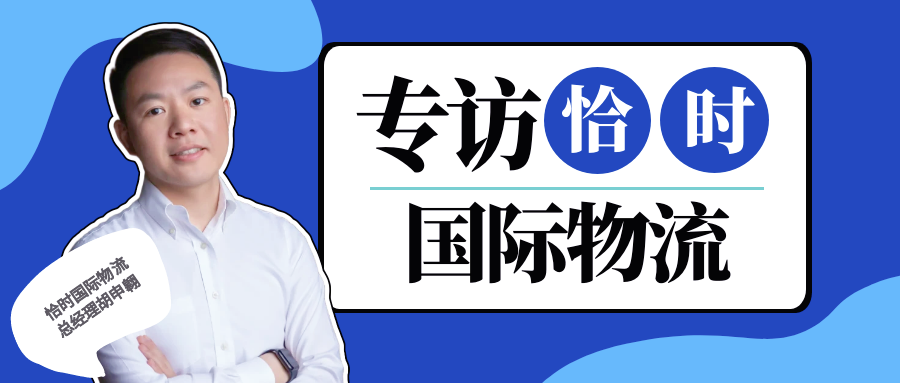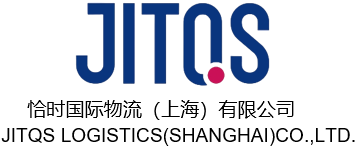Detail
Exclusive Interview of JITQS Logistics by FEEAIR.com: Making Logistics a Driving Force for Enterprise Development
JITQS Logistics|Mar 04, 2025

The current global trade environment is complex and volatile, and logistics enterprises are facing huge challenges. Against this backdrop, JITQS Logistics has grown rapidly with its professional services and has become a rising star in the industry. Today, FEEAIR.com has invited Mr. James, General Manager of JITQS Logistics, to share their development experience.
FEEAIR.com: Hello, James. The name "JITQS" is very distinctive. Could you tell us the origin of it?
James: We carefully deliberated and determined this name when we started our business. When the company was established in 2020, we found that traditional logistics services could no longer meet customers' needs, and the market required more professional and efficient logistics services.
"QS" has two meanings. One is "punctual", and we need to ensure that goods are delivered on time. The other is "suitable", and we need to provide customers with the most suitable logistics solutions.
FEEAIR.com: James, I find the English name JITQS of "QS" very interesting. It is neither the pinyin nor a common word. How did you come up with it?
James: There is indeed something particular about this English name. JIT is the abbreviation of Just In Time, which is the lean production concept of Toyota that we have always admired, emphasizing timeliness and efficiency. QS is the initials of the pinyin of "QS". Combined together, it is JITQS. We also gave it an interesting meaning within our company: Just In Time Quick Service! That is, we need to achieve fast and accurate services.
FEEAIR.com: It is said that it is so difficult to do business in the logistics industry nowadays. How does JITQS cope with these challenges?
James: To be honest, it is really not easy to engage in logistics now. Customers have higher and higher requirements. They not only want fast delivery but also full transparency throughout the process, and preferably, they also want us to help them save money. We mainly focus on three key points:
First of all, we need to make our service network comprehensive and solid. We must be proficient in air freight, sea freight, and land transportation. It's just like running a restaurant. You need to have a full range of cuisines to meet the needs of different customers.
Secondly, the supporting services must keep up. We cannot be negligent in links such as customs declaration and warehousing. It's like matching a charger for a mobile phone. If it's missing, it won't be convenient to use.
Most importantly, we need to truly think from the customer's perspective. Let me give you a practical example. We have an old customer who is engaged in electronic products. He used to complain a lot about logistics issues: high prices, lack of information transparency, and frequent customs clearance problems. After investigation, our team helped them do three things: re-organize product classification, optimize the transportation route, and improve the customs clearance plan. Three months later, the transportation time was shortened by 20%, the cost was reduced by 15%, and the customs clearance became much smoother.
After all, doing logistics is like being a consultant. You need to be able to make overall arrangements and be able to adapt to changes. Our advantage is that we can coordinate various transportation modes well, just like conducting a symphony. But fundamentally, we still need to adhere to the principle of "customers first, problem-solving". When customers encounter problems, we don't simply say "this can't be done", but think "how can we make it happen".
FEEAIR.com: The industry knows that QS provides services to direct customers. Serving direct customers is a special test of the team's ability. How has QS cultivated a professional direct customer service team?
James: That's a good question. Building a direct customer team is indeed a systematic project. We mainly focus on several key points:
First of all, we are very strict in talent selection. Each new member has to go through three rounds of examinations. We not only look at their professional abilities but also examine their service awareness, especially their understanding of what customers are thinking.
Secondly, our training system is very complete. After new employees join the company, they need to complete the "311" training: three weeks of theoretical training, one month of on-the-job rotation and practical operation, and one simulated assessment. Only those who meet the standards can independently deal with customers.
Most importantly, there is the assessment mechanism. We implement a "dual-dimension assessment": 50% depends on performance indicators, and 50% depends on customer evaluations. Last year, there was a salesman who had good performance but received a lot of customer complaints, and finally, he was transferred to another position.
FEEAIR.com: James, what do you think the development trend of the logistics industry will be in 2025?
James: To be honest, 2025 will be a watershed for the logistics industry. It is very clear now that the industry is undergoing a polarization: on one side are those enterprises that actively embrace digital and intelligent transformation, and these companies will get better and better; on the other side are those enterprises that still stay in the traditional mode, and they may face increasing difficulties.
Nowadays, freight forwarding companies basically have two paths to choose from. The first path we call "Going to Northeast China", which means continuing to do things in the traditional way, sitting in the office to build relationships with carriers and making profits from the booking space price difference. This path really won't go far. Now the price difference is getting thinner and thinner, and it will be eliminated sooner or later.
The second path we call "Going to Southeast Asia", but it is not simply about opening a company overseas. Instead, it is about going global together with Chinese manufacturing enterprises and getting directly close to customers. Embed logistics services deeply into the industrial chain, transforming from a simple transportation link into an overall solution, and creating more value for customers.
QS has chosen this path and goes overseas together with Chinese manufacturing enterprises. In this way, we can not only help customers solve problems but also achieve better development for ourselves. QS and customers grow together.
FEEAIR.com: James, I heard that you have always persisted in reading. Could you recommend a book for our readers?
Indeed, reading has been my habit for many years. If I have to recommend a book, then this classic "The 7 Habits of Highly Effective People" is what I think is worth recommending to everyone. In the logistics consulting business, I always believe that "the unity of knowledge and action" is the most important. Although we often say "learning by doing" and it is very important to accumulate experience in practice, systematic knowledge input is also indispensable. Just like our company's service concept "QS", we need to grasp the present and also look to the future. This book teaches us not only working methods but also a way of thinking. For example, the principle of "begin with the end in mind" has deeply influenced the way we think when designing logistics solutions for customers.
FEEAIR.com: The last question is how do you define "good logistics service"?
James: This is an interesting question. I think a truly good logistics service should be as natural as breathing - customers hardly feel our presence when everything is going smoothly, but once they encounter problems, we become their most reliable "oxygen cylinder". After all, a good logistics service is not judged by what we say but by who customers think of first when they encounter difficulties. This is the direction we have been striving for.
FEEAIR.com: Okay, thank you, James, for your sharing.
James: Thank you also for the interview by FEEAIR.com. I wish FEEAIR.com all the best in its development, and I hope everyone will support QS more. Thank you!

